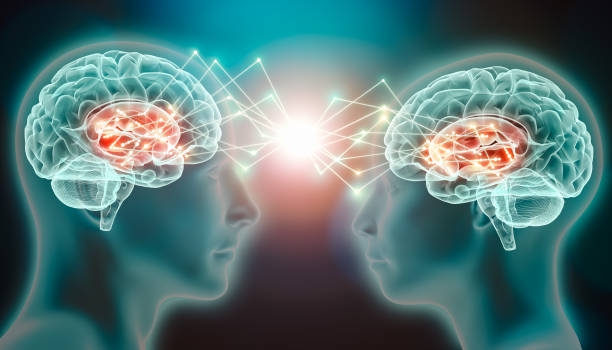Anxiety is not just “feeling stressed.” It’s not a sign of weakness, and it’s not something you can simply “snap out of.” It is a complex emotional and physiological response that can affect your thoughts, body, and daily life in ways both subtle and overwhelming. Millions of people around the world live with anxiety disorders, often without realizing it.
The tricky part? Anxiety can wear many masks. Sometimes it’s the racing heart you feel before speaking in public. Sometimes it’s the constant “what if” thoughts that keep you awake at night. And sometimes, it’s that vague, restless feeling you can’t quite name.
In this guide, we’ll explore ten signs you might be dealing with anxiety, not just occasional nervousness. Along the way, we’ll talk about how to seek help, what science says about treatment, and why you are not alone in this.
The Invisible Weight of Anxiety
Before diving into the signs, it’s worth understanding what anxiety actually is. From an evolutionary standpoint, anxiety was meant to protect us. When our ancestors heard a rustle in the bushes, their bodies pumped out adrenaline and cortisol, preparing them to fight or run. This “fight-or-flight” response kept them alive.
The problem is, in modern life, our brains sometimes react to deadlines, traffic jams, and social situations as though they were saber-toothed tigers. The threat isn’t real, but the body’s response is.
For some people, this heightened state becomes chronic. That’s when anxiety can cross from a healthy alertness into a disruptive, exhausting condition.
Sign 1: Constant, Overpowering Worry
It’s normal to worry occasionally — about paying bills, keeping loved ones safe, or doing well at work. But with anxiety, worry can become constant, intrusive, and hard to control.
If you have anxiety, you might find yourself stuck in a loop of “what if” thinking:
- What if I mess up tomorrow’s meeting?
- What if something bad happens to my family?
- What if I lose my job?
These thoughts don’t just appear now and then — they dominate your mental space, even when there’s no immediate reason to feel alarmed. You may also notice that the worries jump from one topic to another without pause.
Over time, this mental chatter can leave you mentally drained, distract you from daily tasks, and even cause physical symptoms like headaches or fatigue.
Sign 2: Physical Symptoms You Can’t Explain
Anxiety doesn’t just live in your head. It often shows up in your body. Common physical signs include:
- A racing or pounding heartbeat
- Sweating without obvious cause
- Trembling or shaking
- Shortness of breath
- Upset stomach or nausea
- Tension in the jaw, neck, or shoulders
These symptoms can be confusing and even frightening, especially if you don’t connect them to anxiety. Many people first seek help from a doctor because they think they have a heart condition, gastrointestinal problem, or another illness — only to discover that anxiety is the underlying cause.
Sign 3: Restlessness and an Urge to “Escape”
When anxiety is present, sitting still can feel impossible. You might feel like your body is buzzing with nervous energy, or you may have an intense urge to pace, move, or fidget.
This restlessness isn’t just physical — it can also feel like a mental itch you can’t scratch. You might constantly look for distractions, switch tasks frequently, or find it hard to finish things because your mind keeps jumping ahead to the “next thing” you have to deal with.
Sometimes, this is the body’s way of trying to burn off excess stress hormones. But over time, it can interfere with work, relationships, and your ability to relax.
Sign 4: Trouble Sleeping — Both Falling and Staying Asleep
Sleep and anxiety have a complicated relationship. Anxiety can make it hard to fall asleep, and poor sleep can make anxiety worse — a vicious cycle.
With anxiety, bedtime can become the hour your mind decides to replay every embarrassing moment from your life or plan for every disaster that could happen tomorrow. Even if you manage to fall asleep, you might wake up in the night, your heart pounding, thoughts racing.
Long-term sleep disruption doesn’t just make you tired; it can affect your mood, concentration, and even your physical health.
Sign 5: Difficulty Concentrating
Anxiety can make your brain feel like a computer with too many tabs open. Even if you’re trying to focus on one task, part of your mind is busy scanning for danger, rehearsing conversations, or worrying about future events.
You might read the same paragraph over and over without absorbing it, forget what you were about to say mid-sentence, or lose track of tasks you just started. This isn’t laziness or lack of intelligence — it’s the brain’s attention being hijacked by anxiety.
Sign 6: Irritability and Low Patience
Anxiety keeps your body in a state of heightened alert, which can make you feel on edge. That tension can spill over into your mood, making you snap at loved ones or feel unusually frustrated by small inconveniences.
This irritability isn’t about being “mean” or “bad-tempered” — it’s often a symptom of the constant stress your nervous system is under. Unfortunately, it can strain relationships and make you feel guilty afterward, which in turn can feed the cycle of anxiety.
Sign 7: Avoidance of Certain Places or Situations
One of anxiety’s most common coping mechanisms is avoidance. If certain places, people, or situations make you feel anxious, you might start going out of your way to avoid them.
This could mean skipping social events, putting off phone calls, avoiding driving, or even staying home for days at a time. While avoidance might bring short-term relief, it often makes anxiety worse in the long run, shrinking your world and reinforcing the belief that you can’t handle certain situations.
Sign 8: Panic Attacks
Not everyone with anxiety experiences panic attacks, but for some, they’re a defining feature. A panic attack is an intense wave of fear that comes on suddenly, often without warning. Symptoms can include:
- A rapid heartbeat
- Feeling like you can’t breathe
- Chest pain or tightness
- Dizziness or lightheadedness
- Sweating and shaking
- Feeling detached from reality
Because panic attacks mimic the symptoms of serious health issues like heart attacks, they can be terrifying. Even if you’ve had them before, each new episode can feel life-threatening.
Sign 9: A Sense of Impending Doom
Anxiety can create a persistent, hard-to-define feeling that something bad is about to happen. This “sense of impending doom” might not be tied to any specific event — it’s just a constant background hum of dread.
You might notice yourself bracing for bad news, expecting failure, or feeling like you’re “waiting for the other shoe to drop.” This can be exhausting, as your body and mind stay locked in a state of readiness for a danger that never arrives.
Sign 10: Overthinking and Perfectionism
Anxiety loves control — or at least the illusion of it. This can show up as overthinking every decision, replaying conversations to spot mistakes, or trying to prepare for every possible outcome.
Perfectionism is a common companion to anxiety. You might set impossibly high standards for yourself, fearing that any mistake will lead to disaster or judgment. While striving for excellence can be healthy, perfectionism driven by anxiety often leads to burnout and self-criticism.
When Is Anxiety “Too Much”?
Everyone feels anxious sometimes. But if these signs are present most days for weeks or months, and they interfere with your daily life — work, relationships, self-care — you might be dealing with an anxiety disorder.
The most common types include:
- Generalized Anxiety Disorder (GAD): Persistent, excessive worry about many aspects of life.
- Panic Disorder: Recurrent panic attacks and fear of having more.
- Social Anxiety Disorder: Intense fear of being judged or embarrassed in social situations.
- Phobias: Intense, irrational fear of specific objects or situations.
How to Get Help
The good news: anxiety is treatable. And seeking help is not a sign of weakness — it’s a step toward freedom. Here are some evidence-based approaches:
Therapy
- Cognitive Behavioral Therapy (CBT) is one of the most effective treatments for anxiety. It helps you identify and change unhelpful thought patterns and behaviors.
- Exposure therapy gradually and safely helps you face the situations you fear, reducing avoidance.
Medication
Some people benefit from medication, such as selective serotonin reuptake inhibitors (SSRIs) or anti-anxiety medications. These should always be prescribed and monitored by a healthcare professional.
Lifestyle Changes
Regular exercise, balanced nutrition, good sleep hygiene, and mindfulness practices like meditation or deep breathing can reduce anxiety symptoms over time.
Support Networks
Sharing your experiences with trusted friends, family, or support groups can help you feel less isolated.
Overcoming the Stigma
One of the biggest obstacles to getting help is stigma — the fear of being judged or misunderstood. But the truth is, anxiety disorders are among the most common mental health conditions in the world, and they are not a reflection of your character or worth.
Talking openly about anxiety, whether with a professional or loved one, helps dismantle the shame and makes it easier for others to seek help too.
Living Beyond Anxiety
Recovery doesn’t always mean eliminating anxiety completely — it means learning to manage it so it no longer controls your life. Many people go on to live rich, fulfilling lives with anxiety, using it as a signal to slow down, set boundaries, or seek connection.
Your anxiety does not define you. It is one part of your human experience — and with the right tools and support, it can be managed, understood, and even transformed into a source of strength.






